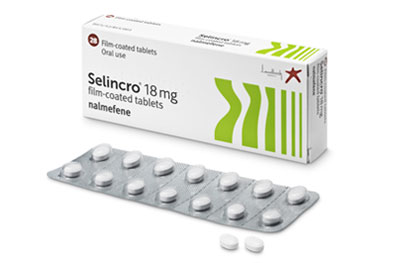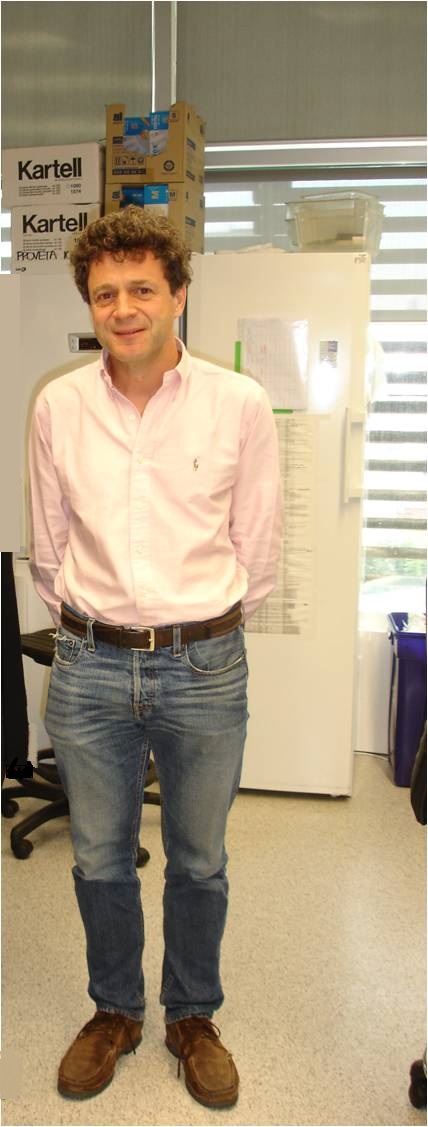Nalmefene, the drug used for the treatment of alcoholism, shows to be effective also under the effects of cocaine
Nalmefene, the drug used for the treatment of alcoholism, shows to be effective also under the effects of cocaine
 In 2013, the European Medicines Agency (EMA) approved the use of the drug nalmefene (Selincro®) to treat alcoholism. Years later, scientists at Heidelberg University (Germany) demonstrated that nalmefene also reduced the desire to use cocaine in people who were addicted to the drug. A study recently published in the British Journal of Pharmacology involving Rafael Maldonado, professor of Pharmacology at Pompeu Fabra University, shows that nalmefene reduces the craving for alcohol present in individuals who are under the influence of cocaine.
In 2013, the European Medicines Agency (EMA) approved the use of the drug nalmefene (Selincro®) to treat alcoholism. Years later, scientists at Heidelberg University (Germany) demonstrated that nalmefene also reduced the desire to use cocaine in people who were addicted to the drug. A study recently published in the British Journal of Pharmacology involving Rafael Maldonado, professor of Pharmacology at Pompeu Fabra University, shows that nalmefene reduces the craving for alcohol present in individuals who are under the influence of cocaine.
The likelihood of having other addictive disorders is seven times greater in persons with an alcohol-related disorder than in the rest of the population. In fact, between 50 and 90% of the people addicted to cocaine are also addicted to alcohol, and there are several studies linking the abuse of both drugs with increased neurological and cardiac emergencies. Scientists at the Complutense University of Madrid, in collaboration with Pompeu Fabra University, the Autonomous University of Barcelona, and the Regional University Hospital of Malaga and Hospital Clinic of Barcelona, have studied the effects that nalmefene can have on people that consume both cocaine and alcohol.
Cocaine causes an increase in alcohol consumption of approximately 40%. The scientific team led by José Antonio López Moreno, researcher at the Department of Psychobiology at the Complutense University of Madrid, observed the effect that nalmefene produced in rats that had consumed cocaine and could self-administer alcohol. The result was a 70% reduction of alcohol consumption linked to the effects of cocaine. In addition, the scientific team analysed some epigenetic changes associated with alcohol consumption and found that nalmefene reduced the epigenetic changes. Thanks to this genetic study, the research team has discovered the possibility of using epigenetic genes as novel biomarkers of alcohol consumption: HDAC, proteins that regulate the silencing of many genes. Alcohol abuse causes an increase in the expression of histone deacetylases in peripheral blood. This increase is diminished after treatment with nalmefene.

Nalmefene is an opioid antagonist derivative from naltrexone. Its action is more effective and therefore it is a good alternative for treating alcoholism. The marketed nalmefene drug, Selincro®, has also proved to be effective in preventing recidivism in people addicted to cocaine. The results obtained in this study provide nalmefene with a new pharmacological property, making it useful in certain cases of addiction.
Rafael Maldonado, head of the Laboratory of Neuropharmacology at UPF’s Department of Experimental and Health Sciences, has participated in this study within the framework of the collaborative research project between the two institutions funded by The European Foundation for Alcohol Research (ERAB -EA-1221).
Reference work: Javier Calleja-Conde, Victor Echeverry-Alzate, Elena Giné, Kora-Mareen Bühler, Roser Nadal, Rafael Maldonado, Fernando Rodríguez de Fonseca, Antoni Gual, Jose Antonio López-Moreno. Nalmefene is effective in reducing alcohol seeking, treating alcohol-cocaine interactions and reducing the alcohol-induced histone deacetylases gene expression in blood. British Journal of Pharmacology.
